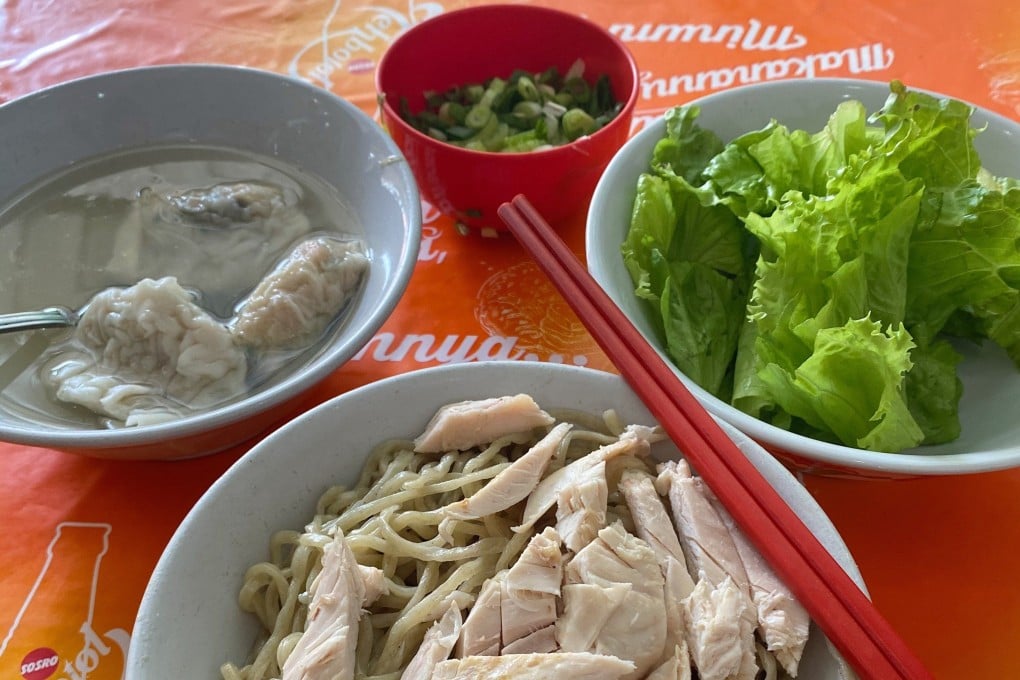How Indonesian-Chinese dishes like bakmi ayam and laksa bogor in the ‘flavour laboratory of Jakarta’ survived Covid-19
- Chinese dishes have played a big part in forming Jakarta’s culinary soul, in a tradition that harks back centuries to its maritime past
- Today, times are hard for local eateries with business plummeting due to coronavirus restrictions. Still, at least flavoursome noodles can bring a smile to the lips

Budianto has been helping his family sell bowls of bakmi ayam (chicken noodles) in Jakarta, the capital of Southeast Asia’s largest economy, since he was a little boy.
His father started selling the noodles on a cart in 1969, later renting a garage in which he set up Bakmi Ayam Acang, or Acang’s chicken noodles. Budianto then took over the business when his father retired in 2014.
The big draw is the home-made yellow noodles, made with Chinese-style steamed chicken, broth and lettuce that cost 38,000 rupiah (US$2.6) for a bowl, a halal option that avoids pork and lard. The store also sells fish balls, meatballs and dumplings.

But times are hard for Budianto, a father of three daughters. The Covid-19 pandemic has caused his revenue to fall by 40 to 60 per cent. Thankfully, food delivery apps have sustained his business with online orders. Since the pandemic started he has managed to sell around 200 bowls a day during the week and about twice that at weekends, a stark contrast to the 350 to 400 bowls a day on weekdays and 550 bowls a day on weekends.
